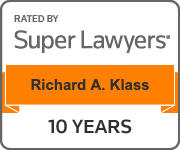When property is transferred to a stranger for no consideration, there is a presumption that the transaction was unfair. Rosevear v. Sullivan, 47 AD 421, 62 NYS 447 (2d Dept. 1900), “and where one party has the advantage of the other, then the burden is on the other party to furnish satisfactory proof that the transaction was in all respects fair.” Id at 423; Arakjinjian v. Arakian, 268 AD 41, 48 NYS2d 501 (1st Dept. 1944); Greenfield v. Greenfield, 123 NYS2d 19 (Sup. Ct., Kings Co. 1953).
An explanation of the reason for the shifting of the burden of proof is provided in Greenfield, infra at page 21, quoting Green v. Roworth, 113 NY 462:
“As was said by Judge Hand in Cowee v. Cornell, 75 NY [91] 99: ‘We return, then, to the question whether this case was one for constructive fraud. It may be stated as universally true that fraud vitiates all contracts, but as a general thing it is not presumed, but must be proved by the party seeking to relieve himself of an obligation on that ground. Whenever, however, the relations between the contracting parties appear to be of such a character as to render it certain that they do not deal on terms of equality, but that, either on the one side from superior knowledge of the matter derived from a fiduciary relation, or from overmastering influence, or, on the other, from weakness, dependence, or trust justifiably reposed, unfair advantage in a transaction is rendered probable, there the burden is shifted, the transaction presumed void, and it is incumbent upon the stronger party to show affirmatively that no deception was practiced, no undue influence was used, and that all was fair, open, voluntary, and well understood.’ “
The holding of the cases requires that the burden of proof should be shifted to the defendant/transferee of property to prove at the onset of trial, “that no deception was practiced, no undue influence was used, and that all was fair, open, voluntary and well understood.”
by Richard A. Klass
———–
copyr. 2012 Richard A. Klass, Esq.
The firm’s website: www.CourtStreetLaw.com
Richard A. Klass, Esq., maintains a law firm engaged in civil litigation at 16 Court Street, 28th Floor, Brooklyn Heights, New York.
He may be reached at (718) COURT-ST or e-ml to RichKlass@courtstreetlaw.comcreate new email with any questions.
Prior results do not guarantee a similar outcome.



